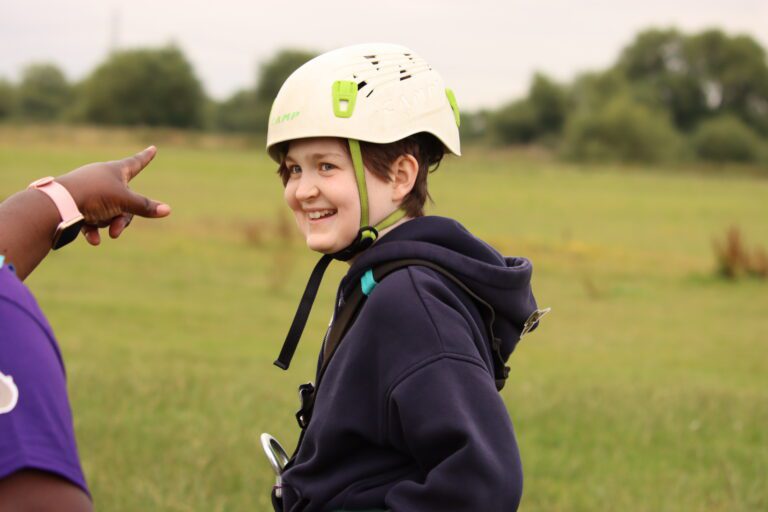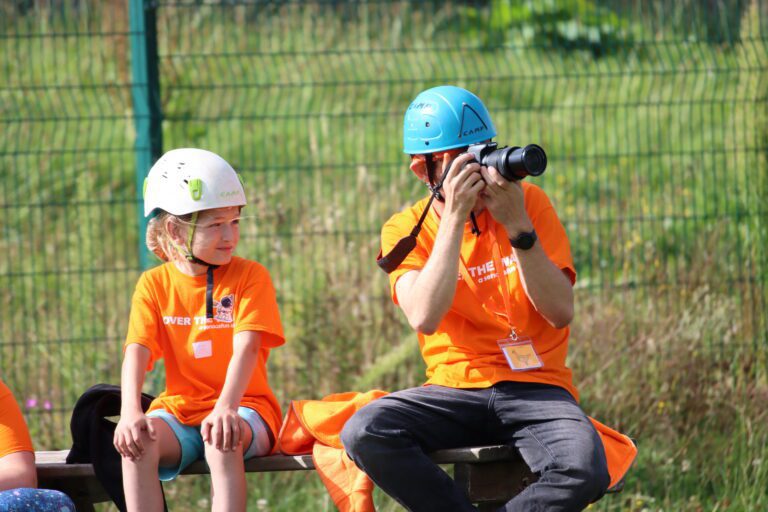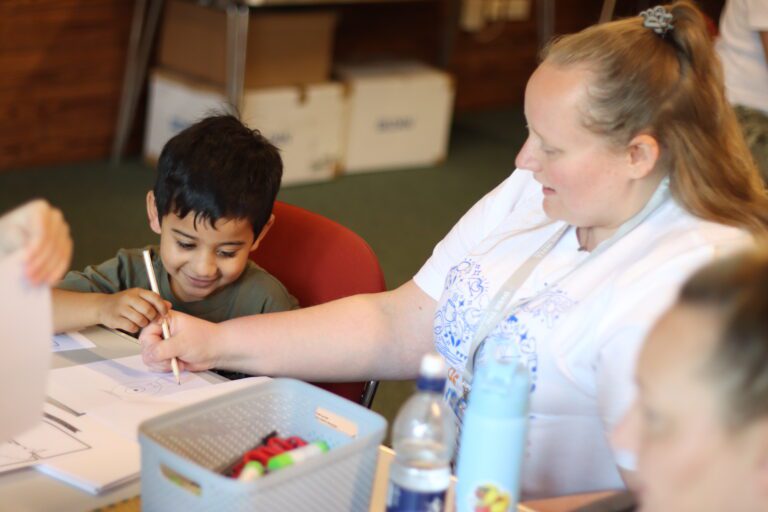Hear from our Wellbeing Coordinator, Jessica, on how to manage stress
Stress awareness day happens every year on 6th November. We asked Jessica, Wellbeing Coordinator at Over The Wall Camp, for her expert advice on managing stress.
Hello! I am the wellbeing coordinator at Over The Wall Camp. I have the joy of ensuring our campers’ wellbeing needs are met, and everyone feels good at camp! Everyone has mental health issues, and it is important that we understand how to navigate mental health challenges and embrace their benefits.
Most people experience stress at differing degrees throughout their lives. Sometimes, stress can be helpful because it gives us the adrenaline we need in certain situations. However, stress can also be very uncomfortable and overwhelming. Stress can have a severe impact and is a real mental health challenge many people face. In today’s world, stress triggers include but are not limited to school, finances, relationships, work/life balance, and world events.
There are a few tools to help manage our stress. Let’s take a look:
Calm your brain and body
You owe it to yourself to have time to relax. This can be done by doing an online visualisation meditation, going outside, or just being somewhere quiet. This can allow you to stop and examine what exactly is causing your stress. It can also give short-term relief from the physical signs of stress—headache, sore stomach, and tension in the body.
Write it down
Take the time to write down everything that comes to mind and what is stressing you out. Simply writing it out moves it from spiralling thoughts to an action point on paper. If you have been burying your head in the sand with an issue, the first step is to call out the situation and find action steps/help. Having a written list allows you to prioritise what is important, when things need to be done, and identify what is a small or big task.
Manage your time
With time management, the best approach is to chunk tasks into manageable bites and allow time for good sleep and eating. Using a calendar or planner for reminders and knowing your timelines is helpful. To build momentum, try doing the small and easy tasks first—this makes you feel productive and positive at the start, leaving more significant tasks at the end without worrying about a long to-do list still sitting. However, you should complete any urgent task first, using the ‘eating the frog’ strategy.
Know your limits
Remind yourself that you are only human. As natural beings, we all need rest and nurture. We’re not like a computer that can stay plugged in. Once you list what is stressing, identify what is within your control. Circles of Control diagrams can help us sort through what we can control (which we may put energy into) and what we can not (which we may have lost energy). It is healthy to focus on what we can do and try to let go of what we can not.






Seek and ask for help
If a stressor has action points you can not do or you feel you keep hitting barriers, identify this as a need to ask for help. You may need to share the load or have specialist guidance/advice. Depending on the situation, this could be from a trusted friend or family member or from agencies like Citizens’ Advice, community centres, or even local schools that may know of helpful agencies.
Self-care
After managing a stressful situation, it is important to practise self-care to allow your mind and body to process and repair from stress. Self-care looks different for everyone, but it can look like having a change of scene, time in nature, a fun event with people you like, yoga/meditation or even a massage! When developing coping strategies for a mix of anxiety or stress, try to practise them continually, even when you’re not feeling stressed or anxious, as this builds your resilience and makes it easier to adopt in moments of stress.
How camp can relieve stress
A trip away with Over The Wall Camp has many benefits; some are particularly good for our mental health. Having a change of scenery can shift our mindset and allow us to reflect differently. Connecting with new people can boost our positivity and promote a feeling of belonging and community. Spending time in nature is a proven method of stress relief, and we have a lot of fun outside! We also ‘disconnect to reconnect’ with no mobile phones; campers (and their families who come to family camp!) may feel less stressed by removing media overload and life comparisons on social media. Our camp schedule lets you kick back and enjoy the moment, knowing everything is safe and planned. Camp is about having fun with activities and trying new things in a happy, secure and welcoming environment!